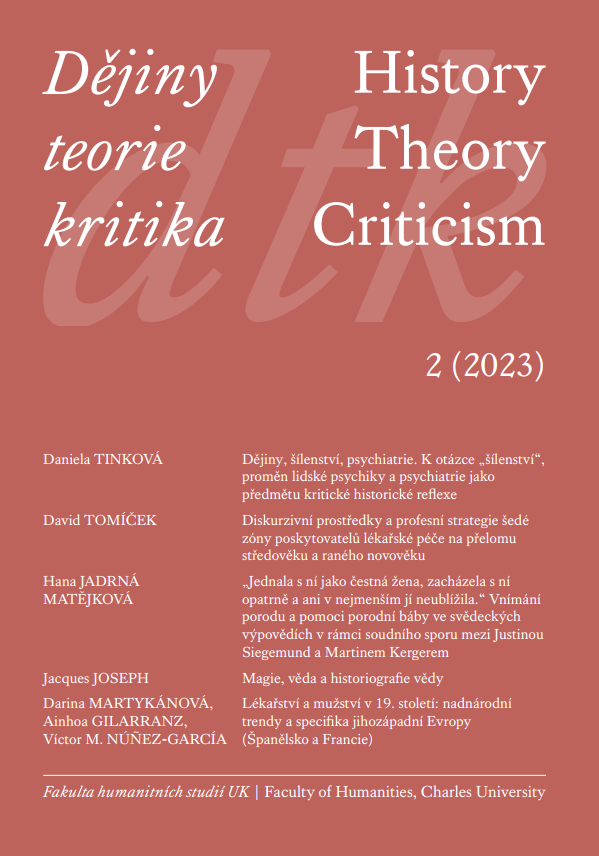Discursive tools and professional strategies of the grey-zone medical care providers at the turn of the Middle Ages and the Early Modern period
DOI:
https://doi.org/10.14712/24645370.3196Keywords:
medical penumbra, empiricists, discursive devices, professional strategie, exclusivityAbstract
The socio-professional milieu of medical care providers at the turn of the Middle Ages and the early modern period was characterised by a strong pluralism, with university-educated physicians representing an elite minority. They asserted their authority over non-graduate healers, the so-called empiricists, only slowly and to a limited extent. Nevertheless, their informal influence in the form of medical knowledge, means of self-presentation and communication patterns were crucial and they greatly influenced the environment that the recent research understands as less internally structured and refers to as ‘medical penumbra’. This study focuses on non-institutionalized groups of empiricists with less distinct professional contours, namely charlatans and itinerant drug sellers, conjurers, and women healers. It analyses the professional strategies, by which they built their exclusivity in the eyes of potential users of their services and the discursive devices, by which authors of Czech-language sources of the late medieval and early modern periods constructed narratives about these groups. It shows how the creators of discourses about particular groups of empiricists transform distinctive elements of their professional strategies into tools for delegitimizing their professional status.


